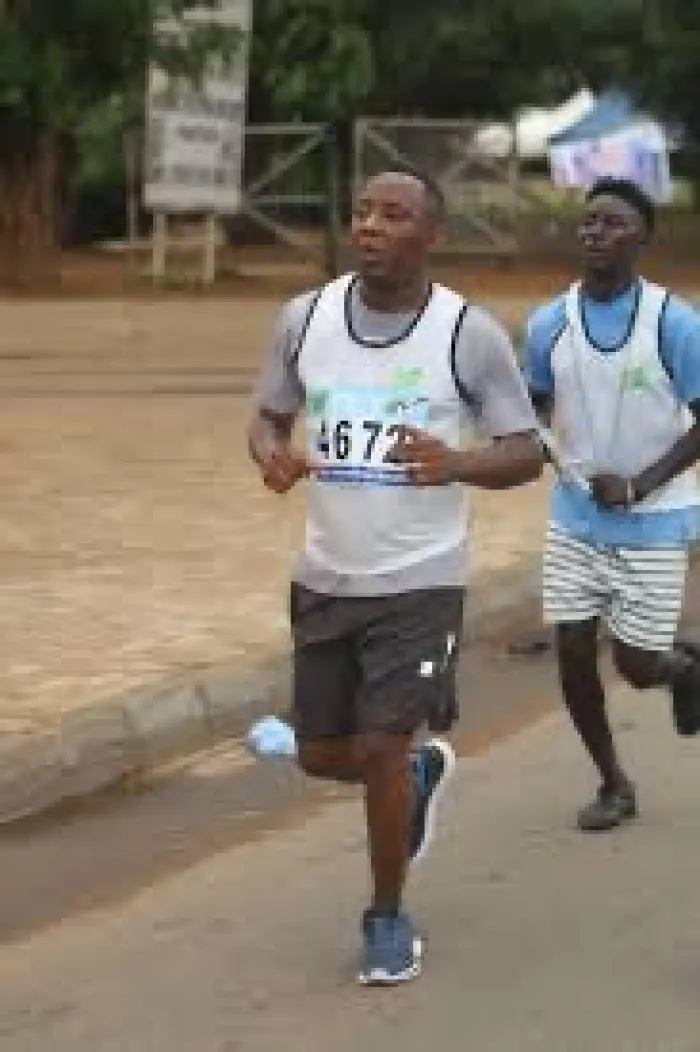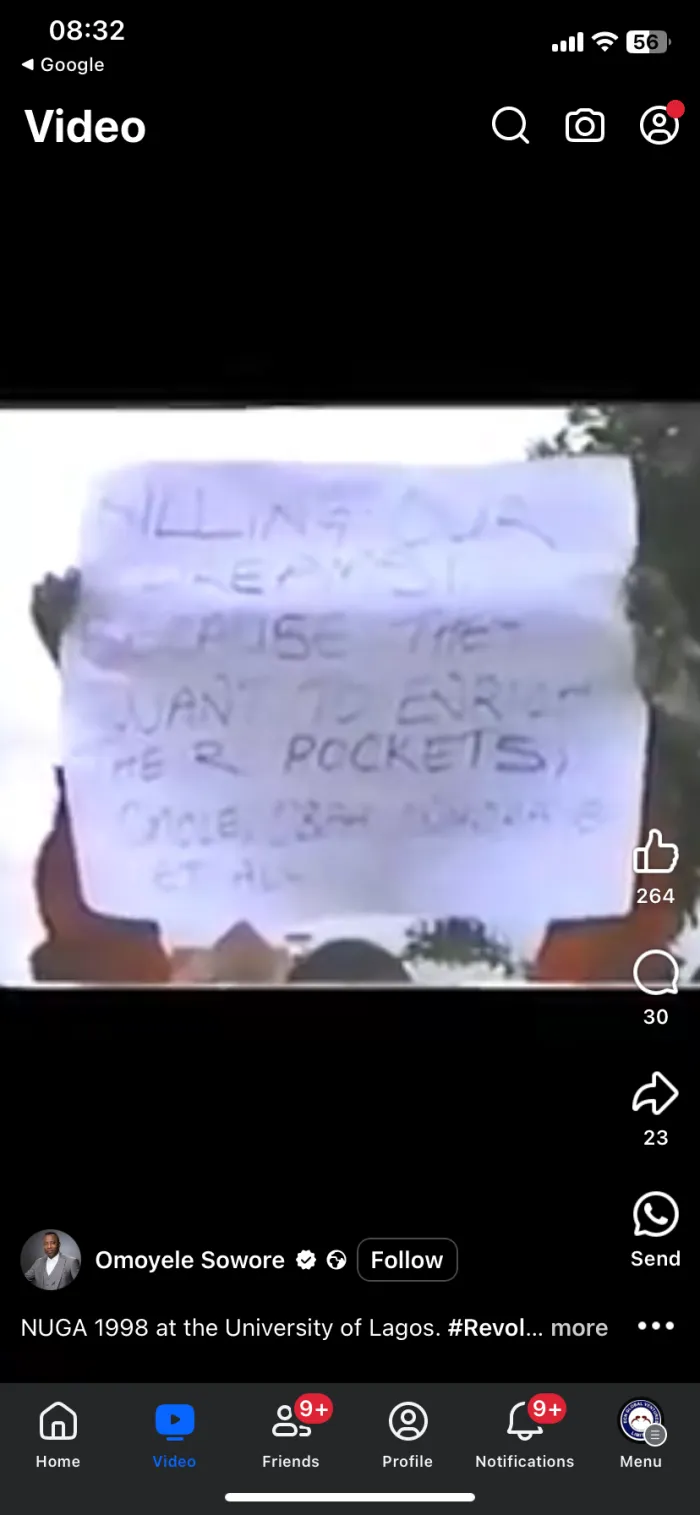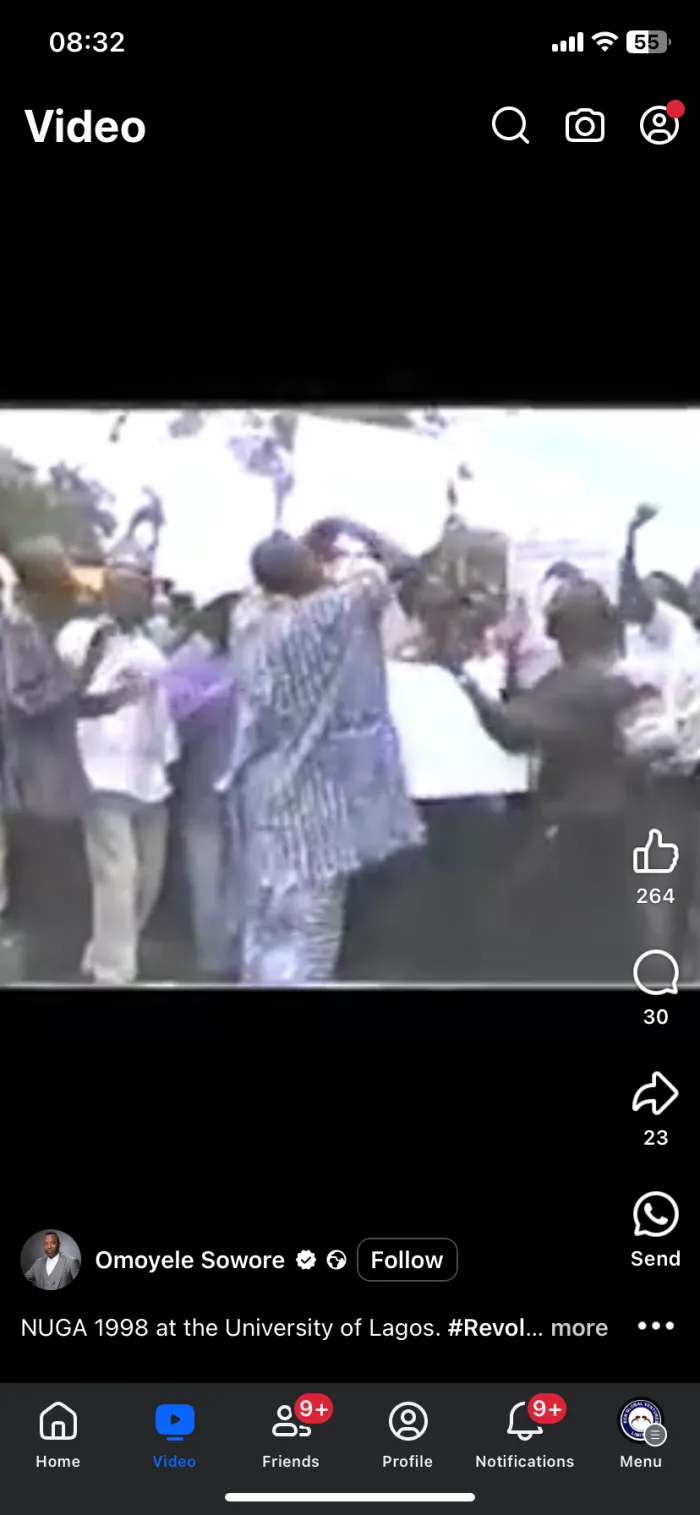ODOGWU IN BOX 18: Sowore, Protocol, and the Politics of Attention-Seeking

Omoyele Sowore, a well-known activist, journalist, and politician, has built a reputation for challenging authority and advocating for democratic governance in Nigeria. However, his penchant for breaking protocol and seeking the spotlight has often overshadowed the very causes he claims to champion. From his days as a student activist to his recent display at the Access Bank Lagos City Marathon, Sowore has repeatedly found himself at the center of controversy, raising questions about his approach to activism and leadership.
Sowore’s penchant for disruption dates back to his university days. In 1998, during the Nigerian University Games (NUGA) hosted by the University of Lagos, a significant incident unfolded. As the then Chief of General Staff, Rear Admiral Mike Akhigbe, prepared to deliver his opening speech, Sowore and a group of student activists stormed the stage and snatched the microphone from Nigeria’s number two citizen at the time. The situation escalated quickly, and it took the intervention of armed military personnel to restore order to the event. Though some saw it as a bold act of defiance against the military government, others viewed it as an unnecessary act of self-aggrandizement, one that did little to advance the cause of student activism.
Fast forward to 2025, and Sowore’s disruptive tendencies were once again on display at the 10th edition of the Access Bank Lagos City Marathon. The event, which drew thousands of participants, including dignitaries and government officials, took an unexpected turn when Sowore defied protocol and occupied a VIP seat reserved for the Lagos State Governor, Babajide Sanwo-Olu, alongside other top officials like the Chairman and Director General of the National Sports Commission, Mallam Shehu Dikko, and Hon. Bukola Olopade.
Having participated in the marathon as an athlete, Sowore made his way to the Governor’s reserved seat after the Governor and other officials stepped away to present medals to winners on the podium. Reports suggest that when asked to vacate the seat, Sowore refused, insisting that nobody had the authority to remove him. The situation almost escalated into a confrontation, and it took the diplomatic intervention of Hon. Bukola Olopade before security personnel were able to escort him out of the area.
Many observers described his actions as petty and unnecessary, questioning why a man who aspires to lead the country would engage in such a blatant disregard for event protocol. While some of his supporters defended him, stating that he deserved VIP treatment, critics argued that leaders must respect rules and procedures, even when they do not favor them.
Sowore’s tendency to challenge authority at all costs has made him a divisive figure in Nigeria’s political landscape. While his activism has helped expose corruption and government inefficiencies, his confrontational and often reckless approach has raised doubts about whether he is genuinely fighting for change or simply seeking attention and relevance.
One of the biggest criticisms of Sowore is his political opportunism and failure to build a cohesive, long-term strategy for change. Despite presenting himself as a revolutionary leader, his 2019 presidential bid under the African Action Congress (AAC) exposed his lack of grassroots political structure and strategic alliances. Instead of carefully laying the groundwork for a serious political movement, he relied on social media influence and activism, which ultimately failed to translate into electoral success.
Following the elections, his party faced a leadership crisis, with some members accusing him of dictatorial tendencies and running the party like a personal empire. This inability to foster unity within his own political platform raises serious questions about his capability to lead a nation.
While activism should challenge the status quo, it should also be strategic and solution-driven. Sowore’s approach often appears confrontational for the sake of confrontation, with little regard for effective political engagement. His #RevolutionNow protests in 2019, for instance, were widely criticized for lacking clear direction and realistic goals. While his grievances about corruption and bad governance were legitimate, his call for an immediate “revolution” was perceived by some as inciting public unrest rather than promoting structured change.
As the founder of Sahara Reporters, Sowore has played a role in investigative journalism, exposing corruption and government misconduct. However, the platform has also been accused of publishing unverified, sensationalist reports that sometimes border on political propaganda. Critics argue that his media outlet often pushes narratives that align with his personal interests rather than adhering strictly to journalistic tenets.
Despite his outspoken stance against corrupt politicians, His shifting political alliances sometimes give the impression that he is more interested in self-promotion than in building a united front for national.
While questioning authority is a fundamental part of activism, a true leader must also understand governance protocols and respect established structures. The Lagos City Marathon incident is a prime example of how Sowore’s disregard for basic protocol undermines his credibility as a leader. He attended the event as a participant, not as a VIP, yet he insisted on occupying a seat meant for top government officials.
The argument that he should have been treated as a VIP holds little weight because leadership is a transitional responsibility, and protocol exists to ensure order. If Sowore truly aspires to lead, he must be ready to respect structures, even when they do not favor him. Otherwise, his actions may set a dangerous precedent for disorder and entitlement.
While Sowore remains an influential voice in Nigeria’s political discourse, his methods and behavior often raise more questions than answers. Leadership is not just about challenging the status quo—it is about building effective, sustainable systems for progress. True leaders do not seek attention at every opportunity, but rather, they demonstrate the ability to navigate complex issues with wisdom and strategic foresight.
The Lagos Marathon controversy was an avoidable incident that only served to reinforce existing criticisms about Sowore’s approach. A leader must know when to challenge authority and when to follow protocol. Respecting rules does not equate to weakness—it is a sign of maturity, discipline, and readiness for leadership.
If Sowore wants to be taken seriously as a national leader, he must shift from attention-seeking activism to structured, strategic political engagement. Until then, his antics will continue to raise doubts about whether he is truly fighting for Nigeria’s future or simply for his personal relevance.





Write a Comment